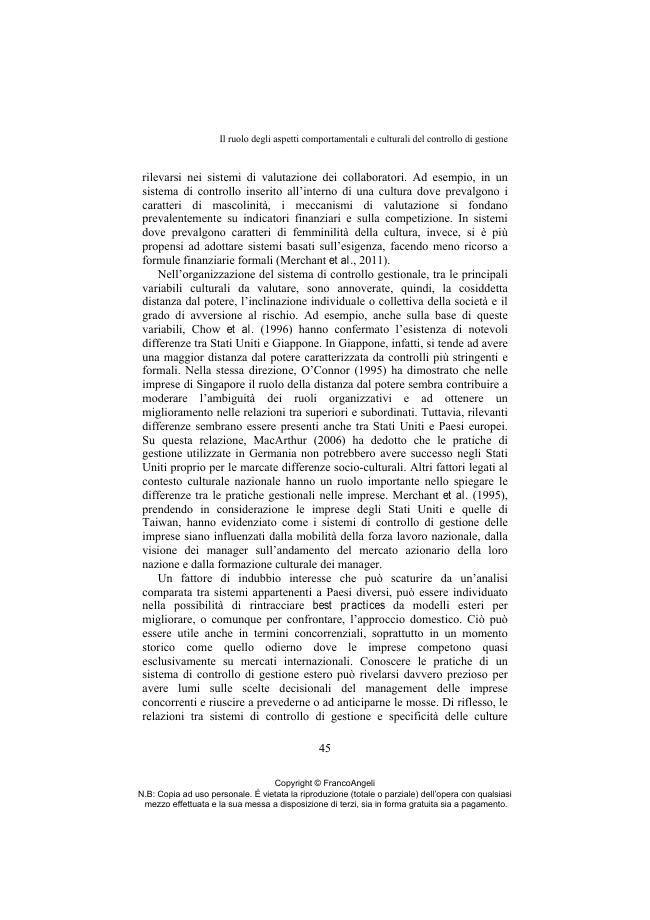Il ruolo degli aspetti comportamentali e culturali del controllo di gestione : un'analisi comparativa a livello internazionale
33-56 p.
A management control system is traditionally defined as a system of different parts linked to the planning and control activities. Firm dynamics' growing complexity requires an extension of this definition of a management control system. The latter is required, because, in addition to such a system's main features, (e.g., its management, organization, and control), sociocultural values linked to specific countries also influence it. Nevertheless, works investigating management control systems paid little attention to cultural values. Such a limitation, in a globalized world economy, is no longer acceptable. Management control practices must, in different countries, be specifically assessed from a broader perspective, for example, considering individuals' behavior linked to the specific national culture. If every management control system depends on behavioral aspects linked to cultural roots, a single one cannot be defined as "the absolute best" or as suitable for all organizations.
The literature has often raised this topic, which some studies have attempted to address, but the research field remains very underresearched. This work aims to fill the gap by providing a systematic review of the existing literature on the cultural aspects through an international comparative analysis of management control systems [Publisher's text].
Fait partie de
Management Control : 1, 2021-
Articles du même numéro (disponibles individuellement)
-
Informations
Code DOI : 10.3280/MACO2021-001003
ISSN: 2239-4397
KEYWORDS
- Management control, behavioral heterogeneity, culture, firms, international comparison



